
The Congress and the Left are in a peculiar state in the upcoming Assembly elections. They have come together to take on Mamata Banerjee in West Bengal, but they remain bitter opponents in another state going to the polls - Kerala.
The Kerala units of both the parties had opposed the tie-up in West Bengal but they seem to have been overruled by their respective central leadership. On its part, the BJP in Kerala would cite the West Bengal alliance to attack the Congress and the Left.
Also read - Meet Natesan, the man who may give BJP a foothold in Kerala
For over three decades, power in Kerala has alternated between the Congress-led United Democratic Front (UDF) and the CPI(M)-led Left Democratic Front (LDF). By that sequence, it is the turn of the Left to form the government this time around. Most pre-poll surveys have predicted a clear victory for the LDF. Can Kerala buck the trend this time?
In this election, there are a number of X-factors that could have unpredictable consequences. Here's a quick look at some of them:
1. Rise of the BJP
The BJP has been an extremely marginal player in Kerala politics. This is despite the reasonably strong presence of the RSS in the state.
However, in the 2014 Lok Sabha elections the party made some gains. It's vote share rose from 6% in the 2011 Vidhan Sabha elections to over 10%. More significantly, the BJP gave a scare to Congress leader Shashi Tharoor in Thiruvananthapuram. Though Tharoor managed to win, BJP led in 4 out of the 7 Assembly segments. The party had fielded its senior-most leader from Kerala O Rajagopal. Rajagopal will be contesting the upcoming Assembly polls from Nemom, and the party is confident of his victory as this is one of the segments he had a lead in for the Lok Sabha polls.
Governments have alternated between the UDF and LDF in Kerala. Has the Congress done enough to break the trend?Though BJP state president Kummanam Rajasekharan has claimed that the party will win a majority, state BJP leaders say that 10 seats would be a realistic estimate. Every seat won would be a bonus for the BJP as it has never opened its account in the state.
The party has also been buoyed by its performance in the civic elections where it did well in Thiruvananthapuram, Kasargod and Palakkad, as well as the Aruvikkara bypoll last year in which its vote share increased five fold.
The main question here is, whom will the BJP's rise harm more?
The civic poll results indicated that the party gained primarily at the Congress' expense. It weaned away a significant chunk of the Congress' upper caste Nair vote.
In the Aruvikkara bypoll, however, the BJP seems to have caused more damage to the Left. The Congress ended up winning the seat.
The BJP has aligned with the Ezhava leader Velapally Natesan's newly formed Bharath Dharma Jana Sena. Natesan is the general secretary of the Sree Narayana Dharma Paripalana Yogam (SNDP), which was founded by Sree Narayana Guru.
Ezhavas have traditionally supported the LDF and any gains the BJP makes in the community may come at the Left's expense.
Under Rajasekharan, the BJP has been aggressively playing the Hindutva card. He had played a key role in promoting the Vishwa Hindu Parishad in Kerala. The BJP's efforts to align with the Christian-dominated Kerala Congress failed, pushing them to adopt a more strident pro-Hindu stance.
However, the BJP's Hindu unit push suffered as the Nair Service Society has refused to support it.
It remains to be seen what impact the BJP's Hindutva drive would have on minority voters, who form nearly 45% of Kerala's population - Muslims 26.5% and Christians 18.3%. In the Lok Sabha elections, minorities had overwhelmingly supported the Congress, but in the civic polls a chunk of the minority votes went the LDF way, supposedly because they were disappointed with the Congress' "weak response" to the BJP's rise in Kerala.
Also read - RSS man hacked to death: is Kannur heading for another cycle of violence?
2. Prohibition
The UDF government's decision to phase out the production and sale of alcohol in Kerala is another important factor that could cut both ways in the election. What has been implemented in Kerala is not a full fledged prohibition, but a phased one. As part of it, the government won't renew bar licenses as and when they expire. 10% of the state-owned Kerala State Beverages Corporation (Bevco) will be shut down every year. But alcohol will continue to be served in 5-star hotels.
Kerala is a state with high alcohol consumption, so the move has not gone down well with many. Bar owners, in particular, have supposedly decided to "ensure the UDF's defeat". BJP's ally Natesan is one of the prominent bar owners.
However, the "prohibition" does seem to have received support from women, among whom there was anger against alcoholism. The UDF claims that the reduction in consumption of alcohol has reduced crime and instances of domestic violence.
BJP workers on the ground have given the prohibition a communal spin, calling it the Congress' way of appeasing Muslims.
3. Oommen Chandy's performance
Oommen Chandy is the first Congress chief minister to complete a full five-year term since K Karunakaran's tenure from 1982-87. This is no mean achievement in a state where factionalism has always afflicted the Congress.
Chandy's survival is particularly miraculous given how his name came up in the infamous Solar Scam. One of his personal aides was arrested in connection with the scam. The main accused, Saritha Nair, has alleged that she paid a bribe to the CM. But the Congress leadership has stood behind Chandy. Apparently, senior Congress leader AK Antony, who gained the epithet Saint Antony for his obsessive probity, told the Congress leadership that Chandy had done no wrong.
The BJP is projecting a win of 10 seats. The real concern is which other party will they dent in order to get that winBesides the Solar Scam, Chandy is said to have done reasonably well as the chief minister. A number of key infrastructure projects such as the Kochi Metro have been carried out in his tenure. The Kannur International Airport and the Vizhinjam port are also coming up.
Chandy also introduced the Zero Landless Kerala policy that provides a small plot of land to every landless family in the state, and started a scheme providing free generic medicines to the people.
Even someone like Natesan acknowledged the work Chandy has done when he said last month that "Chandy is the most talented and capable Chief Minister Kerala ever had".
The question is, has the Solar Scam taint ruined Chandy's track record?
4. Infighting
Both the Congress and Left are ridden with infighting. Even though the party leadership persisted with Chandy, his rivals haven't given up. The rival faction is known as the "I" group, named after the Congress (I) that existed during Indira Gandhi's time, which coincided with the dominance of Karunakaran in Kerala politics. The I-group, led by Ramesh Chennithala, is said to comprise erstwhile followers of Karunakaran, as opposed to leaders like Chandy who are close to Antony.
Even Kerala Pradesh Congress president VM Sudheeran has had many differences with Chandy. It was Sudheeran's activism on prohibition that is said to have forced Chandy to take the decision. However when it came to allegations related to the Solar Scam, Sudheeran came out in Chandy's defence.
The Left too has its share of infighting problems, with both VS Achuthanandan and Pinarayi Vijayan vying for the CM's post.
Alcohol prohibition and Solar scam likely to affect Oommen Chandy's votes, despite the good work Congress has done so farThe CPI(M) central leadership has decided not to announce a CM candidate, but it has allowed both the leaders to contest the polls. This leaves the issue of leadership open-ended. There is likely to be a scramble between the two leaders on ticket distribution.
In the BJP, the differences are mainly regarding who will contest the limited number of seats considered promising for the party. The seats in Thiruvananthapuram district and a few seats in Kasargod are particularly coveted.
The Kerala Congress, a constituent of the Congress-led UDF, is on the verge of a split. Dissident leaders have accused party chairman KM Mani of favouring his son at the expense of the party.
Also read - No booze is good news?: CM Oommen Chandy on prohibition, elections & more
What is at stake
The stakes are extremely high for the Congress and the Left. As of now, the Left is only in power in Tripura. Despite the alliance in West Bengal, upstaging the Trinamool Congress will be an uphill task. Therefore, the Left needs to win back Kerala to preserve its relevance in national politics.
For the Congress, the elections are no less significant. It is defending two major states in the upcoming elections - Kerala and Assam. These also happen to be states where it has a deeply entrenched organisation, something it lacks in many other parts of the country. If it loses both these states, the only Congress governments would be in Karnataka, the hill states of Uttarakhand and Himachal Pradesh, and smaller states like Meghalaya and Mizoram.
As far as the BJP is concerned, the Kerala Assembly election will be a test of how far Amit Shah's Ashwamedha horse can go.
More in Catch - Oommen Chandy has 2 lifelines left: High Court and high command
On their own: why Kerala women workers' strike isn't just for wages



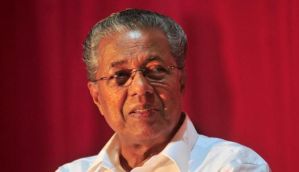
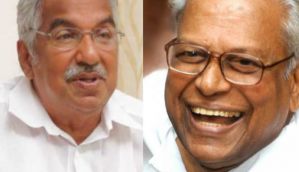
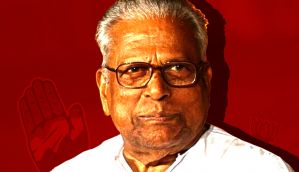
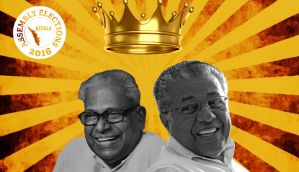
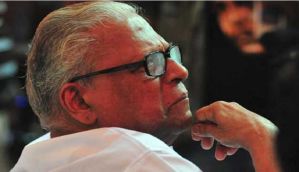
![BJP's Kapil Mishra recreates Shankar Mahadevan’s ‘Breathless’ song to highlight Delhi pollution [WATCH] BJP's Kapil Mishra recreates Shankar Mahadevan’s ‘Breathless’ song to highlight Delhi pollution [WATCH]](https://images.catchnews.com/upload/2022/11/03/kapil-mishra_240884_300x172.png)

![Anupam Kher shares pictures of his toned body on 67th birthday [MUST SEE] Anupam Kher shares pictures of his toned body on 67th birthday [MUST SEE]](https://images.catchnews.com/upload/2022/03/07/Anupam_kher_231145_300x172.jpg)






